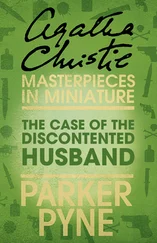The outside air was crisp. He walked an asphalt path away from the ward and entered a grove of bunioned spreading elms that lay between the buildings of Centre Lawn and West Lawn. A hundred grey birds watched knowingly from the branches. Saul could feel how each of his muscles fit together, like those Chinese temples built without nails. On the way, he halted at his favourite bench and beheld the river, a murky snake that wandered all the way to Vancouver and the ocean. Riverview Hospital sat on land that was, in Saul’s youth, the middle of nowhere: a comfortable distance for a nuthouse. But from this bench Saul had watched the city break over the hospital, mazes of houses coiling up the river’s banks all the way to the seam of the horizon. Years back, they’d closed both East Lawn and West Lawn and shipped those patients someplace else. Luckily, Saul was allowed to stay, because they’d concluded he posed a threat to the community. “What community exactly are you referring to?” he’d said to Dr. K. in his office when he told him the good news. “Well, Saul, the world,” Kraepevic said, clicking. This was the period when they’d overhauled all the words: patients became clients, the Isolation Room became the Quiet Room, and the whole world became a community.
Saul continued on the path and met a few abandoned utility buildings. Kraepevic, in one of his impromptu dissertations, had once told him that when Riverview was founded it had included a farm, and the patients worked on the land as part of their rehabilitation. Some of these buildings were obviously part of the farm and others were for purposes he couldn’t guess at. Now, word was that the hospital made a little money on the side allowing crews to shoot movies and TV shows in the closed wards where all those people were once held. Even some of the same programs Saul watched religiously in the TV Room.
He left the path and ventured around back of West Lawn, buffing his palm along its stone wall. The grey masonry of the hospital was castle-like. Why build a nuthouse of such sturdy material? Saul wondered. What siege was to be defended against?
Near the loading dock, Saul noticed a wooden door, one he’d never seen before, about five feet high and faded, so it blended in with the colour of the stone. Saul gripped the doorknob and the door squawked against his shoulder, swinging into a dark corridor. He had tried thousands of doors of the many buildings at Riverview and they’d all been locked. He couldn’t help wonder why this door had opened for him now, on this day. He thought to fetch Kim to see if it would yield in the same way to her, then decided against it. He couldn’t stand to endanger her.
He floated through a dingy hallway that terminated at a narrow concrete staircase reaching up. Could it be a trap? He held his breath to listen for the Assassin and heard only the distant sound of a TV, or perhaps a radio. He ascended five flights to the foot of a long institutional hallway, identical to his own ward except that the paint, the colour of a browning avocado, was flaking. He saw a bundle of thick cables on the floor and decided to let them lead him. He walked to where they ran under a door that was painted to look like wood, fitted with a brass knocker and the number 235 in brass numerals. The number felt compellingly lucky to him and he pushed open the door, also miraculously unlocked.
The room was furnished with a large-screen TV, expensive hi-fi stereo, leather couch, even art on the walls, all of it bathed by light from an arched window. He saw that the cables ran to movie lights at the edges of the room. The place was instantly familiar to him, maybe from the innumerable hours he’d spent in apartments like this on the TV shows he’d seen over the years, much like Luis had been familiar when Saul first watched him feed Georgina. This is a set, Saul said out loud.
As he inspected the place, the thoughts began to form. They began as an idea, an emulsion of insights laid over his vision. Then these thoughts birthed other thoughts, and those new thoughts came with sounds hidden in their pockets. They assembled in the city of his head like a murmuring crowd awaiting some great event. They conversed and argued, issued decrees from behind his ears. They were both everyone he had and hadn’t ever known. They came together like starlings massing densely in a flock, if only for a second, and in this way they became impossible to ignore. So it was, there in the familiar comfort of the fake apartment, that Saul’s voices instructed him to leave the hospital, move here and begin a new life.
Then he was in the bedroom, picturing his only jacket hung in the closet and his full colour spectrum of sweatsuits jammed into the drawers. In the kitchen he imagined the fridge laden with food, food he’d brought home on the bus from the grocery store. He saw his favourite blanket folded over the couch, where he would hole up and watch Columbo all day without people fighting and playing their depressing tapes whenever they pleased. In the bathroom he saw his toothbrush in a cup beside the sink.
Saul removed his clothes and donned the white terry-cloth bathrobe he found hanging behind the bathroom door. He felt fresh and sophisticated, regal almost, as he beheld the apartment’s sweeping view of the river, a vista unmarred by bars or wire mesh. Up this high, he could see so much more than he ever had from his bench.
The rustling of voices implored him then to sit on the blue lounge chair, and he did. He fell into the chair feeling free and competent, much like he did when he performed his chores, but the warmth of that sensation now twenty times greater. He immediately saw the hole in his plan: Kraepevic would never let him leave because he still believed Saul was unfit for the community. I’m not dangerous, Saul said, not anymore. At this notion something stood up inside him, a memory emerging in his mind like the sun from an eclipse: essential, beautiful and blinding to behold. A woman. He’d passed her twice each weekday that whole year he’d walked to and from work as a stockboy at Reno’s grocery store. Fearful of the sound of his own voice, he’d never dared speak to her, but each time he passed he sensed her reaching out for him in methods beyond words. She described her moods with the clothes she wore. She drew him diagrams on the sidewalk with her flashing eyes. Strung in her hair he found codes that could only be unravelled with the other codes written on her lily-white skin. Each day this simultaneous beckoning and rebuffing tormented and inflamed him. Each night in the bath, he’d practise holding his breath and find her voice swimming in the dull water. He’d find it in the hissing spaces between radio stations as he lay sleepless. Even now, with his brain crackling and encyclopedic, he could not remember what she said in these messages. Braids of riddles and baroque details, challenges and dares, but the thrust of them was her desire to have her life derailed, disrupted. She was unhappy, her days were a brutal chore. She said she could never speak this out loud, had never told this to anyone.
Sitting there in his robe in his blue chair, he watched himself passing with her out front of a radio shop. He watched her draw breath as if before a dive, her eyes, green and bulbous as an owl’s, set beneath a silk kerchief tied over hair glossy black as videotape. Beige leather gloves gripped tighter the handles of a vinyl handbag the hue of a poisonous frog. Then his hands were on her shoulders. An expression took root in her face, not fear, a determined concentration. She’d trusted him, even with the shop window now in glinting bits hanging around her like tiny stars and the heavy smell of new electronics wafting over them. He watched her delicate body strike a stereo cabinet and fall to the floor as scythes of glass dropped from the frame above and into Saul’s outstretched forearms, shearing them to the bone, and he was gladdened for the openings and he drew into his mind her silvery voice: thank you, thank you …
Читать дальше












